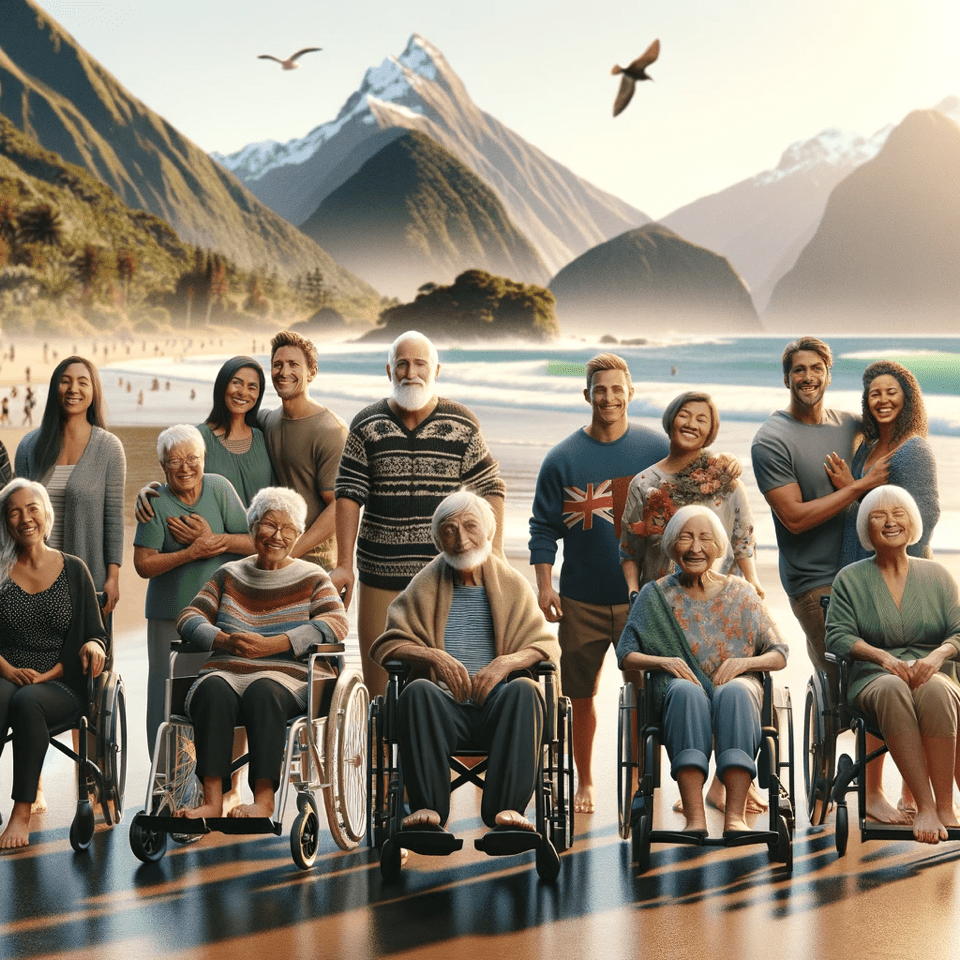Introduction
In the heart of New Zealand’s Māori culture lies Hauora, a philosophy emphasising holistic well-being. This philosophy intricately intertwines with the scientifically discovered Endocannabinoid System (ECS), a complex network within our bodies that plays a vital role in maintaining various physiological processes, fostering a harmonious balance between the mind, body, and spirit [1]. This blog post explores the synergy between Hauora and the ECS, highlighting non-medicinal cannabis interventions to guide us to optimal health, with a special focus on the offerings at CannaPlus+.
Understanding Hauora
Hauora translates to “total well-being” or “holistic health.” It encompasses not only physical health but also mental, emotional, social and spiritual well-being. Hauora recognises that these aspects are interconnected and must be in balance for optimal health.
Hauora goes beyond the absence of disease or illness; it emphasises the importance of achieving balance in all aspects of life. This includes maintaining a healthy diet, engaging in regular exercise, nurturing positive relationships, managing stress effectively, and finding purpose and meaning in life. By addressing these various dimensions of well-being, individuals can experience improved overall health and quality of life.
Hauora recognises that our bodies have an innate ability to heal themselves when given the right conditions. It acknowledges that each person is unique and requires personalised approaches to achieve optimal health. This holistic approach takes into account not only physical symptoms but also factors such as lifestyle choices, environmental influences, and emotional well-being.
Taha tinana (Physical Wellbeing)
The ECS significantly influences our physical well-being, potentially aiding in pain management and immune response [2]. Engaging in at least 30 minutes of moderate-intensity exercise most days of the week can boost endocannabinoid levels, often resulting in a “runner’s high”, mediated by the ECS. This phenomenon is a testament to the body’s natural ability to enhance mood and reduce pain through physical activity. Furthermore, a balanced diet, rich in fresh produce and devoid of heavily processed foods, can also enhance the ECS, promoting overall physical health. At CannaPlus+, we advocate for a balanced approach, incorporating these non-cannabis interventions to foster your Taha tinana, guiding individuals to a path of physical wellness grounded in both tradition and science.
Taha hinengaro (Mental and Emotional Wellbeing)
Mental and emotional well-being is a critical pillar of Hauora. The ECS is known to regulate mood and sleep, offering a pathway to mental tranquility [3]. At CannaPlus+, we guide you through personalised plans that include therapies like Cognitive Behavioural Therapy (CBT), a structured program helping individuals identify and change negative thought patterns, and Acceptance and Commitment Therapy (ACT), which fosters psychological flexibility. Additionally, Mindfulness-Based Stress Reduction (MBSR) programs teach mindfulness meditation to reduce stress and anxiety. Incorporating daily gratitude practices can further enhance mental well- being, fostering a positive outlook on life. These interventions, grounded in evidence-based science, nurture your Taha hinengaro, promoting a harmonious mental state.
Taha wairua (Spiritual Wellbeing)
Taha wairua is nurtured through a deep connection with oneself and the environment. The ECS can potentially influence this aspect by maintaining a harmonious balance within the body [4]. Embark on a spiritual journey with the guidance of our experts at CannaPlus+, exploring spiritual practices like yoga, a mind-body practice combining physical postures and meditation, and Tai chi and Qigong, ancient practices fostering physical and spiritual harmony. Spending time in nature can further nurture your Taha wairua, promoting relaxation and increasing endocannabinoid levels. These practices, grounded in both tradition and modern science, foster a deep sense of peace and well-being.
Taha whānau (Social and Community Wellbeing)
Community well-being is fostered through strong social connections and a sense of belonging. The ECS supports this pillar by potentially enhancing social interactions and community bonds [5]. At CannaPlus+, we encourage enriching the ECS through creative expression, fostering a deep connection with one’s inner self and the community. Engaging in social activities, volunteering, and helping others not only provide a sense of community but also boost endocannabinoid levels, improving mood and reducing stress. These activities foster Taha whānau, nurturing a vibrant and supportive community grounded in empathy and collaboration.
Conclusion
As we navigate the journey to optimal health, the guidance from the principles of Hauora and the scientific insights from the endocannabinoid system serve as beacons of light. Remember that medicinal cannabis is one component to this integrative approach to enriching the endocannabinoid system and optimising your health and wellbeing. At CannaPlus+, we are committed to guiding and educating you on this path, offering expert advice and products to enhance your well-being journey.
Connect with us at CannaPlus+ to unlock the secrets to optimal health and wellness
References
- Pertwee, R. The pharmacology of cannabinoid receptors and theirligands: an overview. Int J Obes 30 (Suppl 1), S13–S18 (2006). https://doi.org/10.1038/sj.ijo.0803272
- Sparling PB, Giuffrida A, Piomelli D, Rosskopf L, Dietrich A. Exerciseactivates the endocannabinoid system. Neuroreport. 2003 Dec 2;14(17):2209-11. doi: 10.1097/00001756-200312020-00015. PMID: 14625449.
- Hill MN, Gorzalka BB. The endocannabinoid system and the treatment of mood and anxiety disorders. CNS Neurol Disord Drug Targets. 2009 Dec;8(6):451-8. doi: 10.2174/187152709789824624. PMID: 19839936.
- Atakan Z. Cannabis, a complex plant: different compounds and different effects on individuals. Ther Adv Psychopharmacol. 2012 Dec;2(6):241-54. doi: 10.1177/2045125312457586. PMID: 23983983; PMCID: PMC3736954.
- 5. Mechoulam R, Parker LA. The endocannabinoid system and the brain. Annu Rev Psychol. 2013;64:21-47. doi: 10.1146/annurev- psych-113011-143739. Epub 2012 Jul 12. PMID: 22804774.
- Acknowledgments – Sir Mason Durie, author “Te Whare Tapu Whā”








